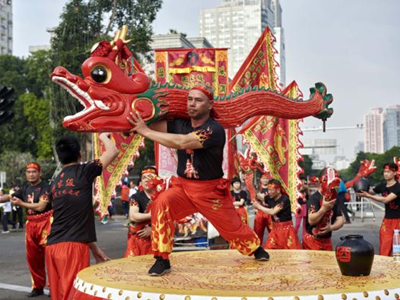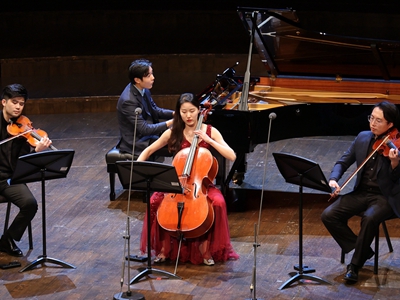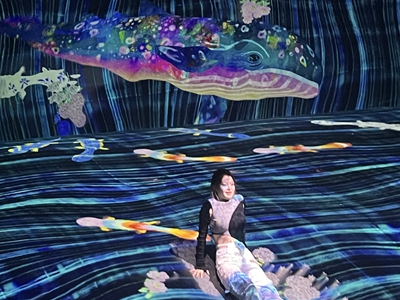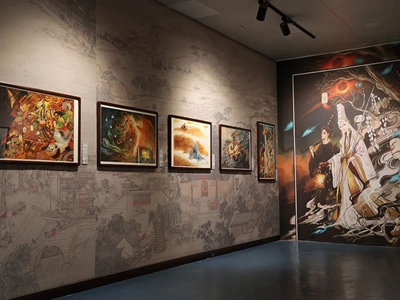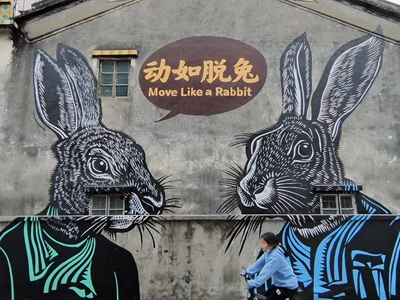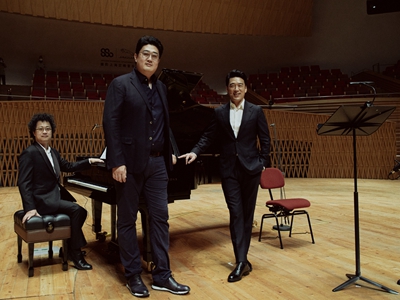Here comes Futian Walled Village Culture Season
This Wednesday, enjoy intangible cultural heritage demonstrations, games and Chinese folk performances at the 2022 Futian Walled Village Culture Season at Xiasha Square in Futian District.
Music celebrates bond between HK and SZ
Many an old Shenzhener still couldn't forget the night of June 30, 1997 when folks lined the city's streets to bid farewell to the 14 battalions of PLA soldiers before they crossed the border to be stationed in the Hong Kong SAR. As if in an instant, a quarter century has passed since the "Pearl of the Orient" returned to the motherland.
Let's co-create at teamLab Future Park
Humans learn about the world through interaction with others and by sharing experiences. Adults and children will have a chance to co-create their own worlds at the new permanent exhibition hall of teamLab in Shenzhen through eight forms of multimedia installations.
Magical beasts, ghosts from China, Japan will haunt you
A new exhibition with illustrations and sculptures created by young Chinese artists and inspired by "The Classic of Mountains and Seas" and "Night Parade of Dead Souls," as well as Japanese masters' ukiyo-e paintings, will give visitors a clear and terrifying image of what such supernatural figures might look like.
UABB Pingshan embraces human touch with 'Dawan Unplugged'
A typical Shenzhen minibus is decorated with lush plants and flowers inside, attracting curious passersby to hop on, a little red room is filled with two lively children eager to read something in front of a microphone, and a mighty structure consisting only of slabs and columns draws children to joyously play around the object. They might not know what these installations are for but they fully enjoy themselves.
Explore the beauty of Tang poetry through art songs
A gem of classical Chinese literature, Tang Dynasty (618-907) poetry has been translated into many different languages and inspired many other art forms. The best-known evidence is German poet Hans Bethge's (1876-1946) translation of Tang poems set in Gustav Mahler's "Song of the Earth."
